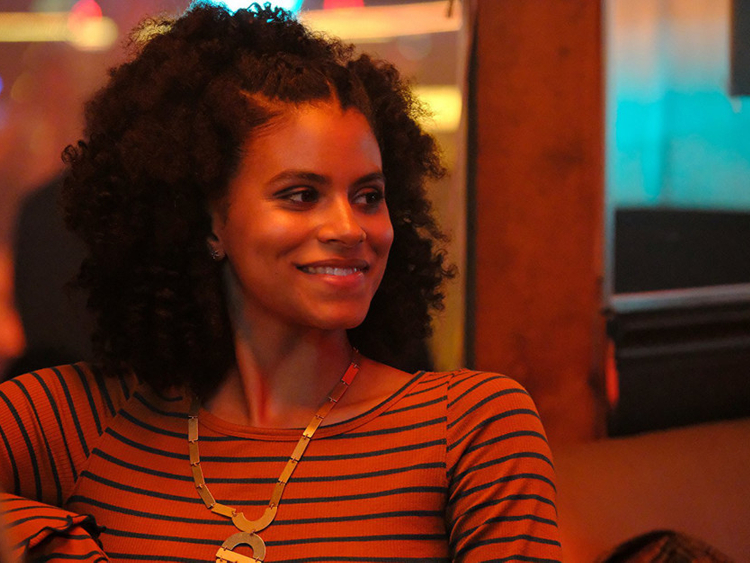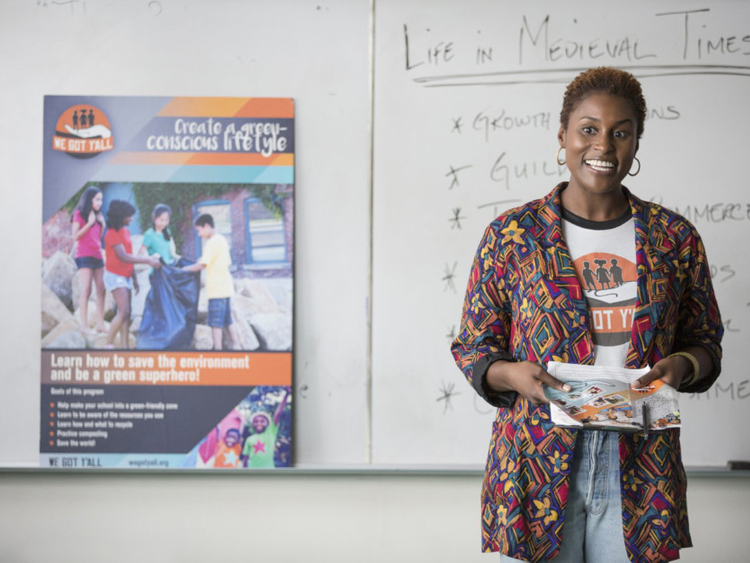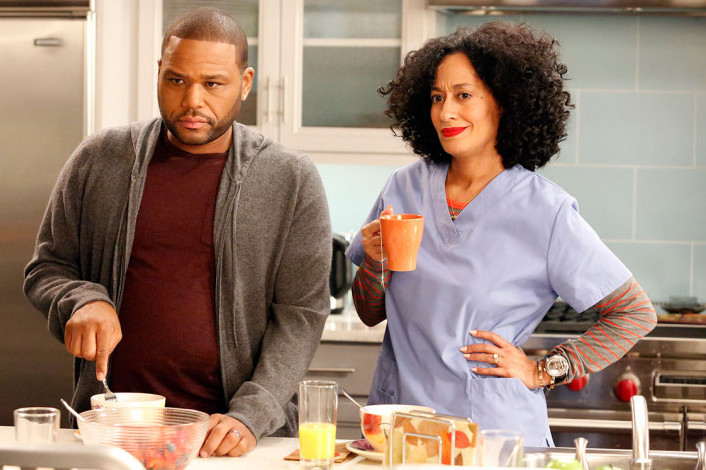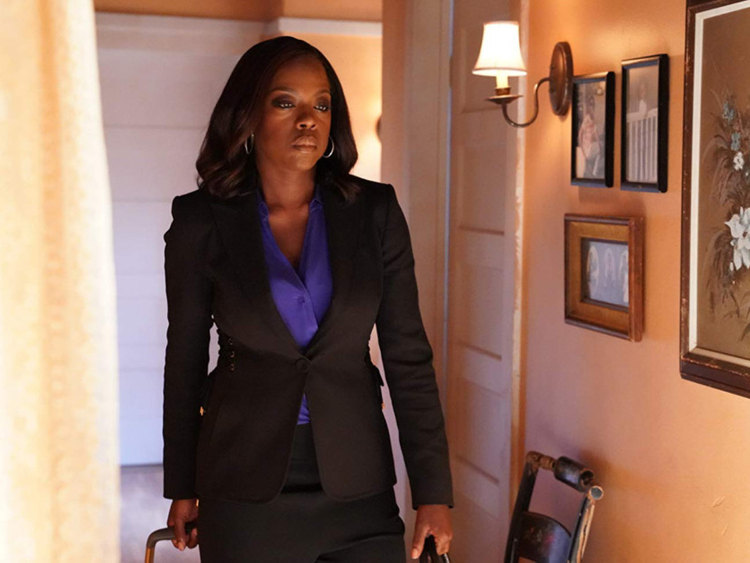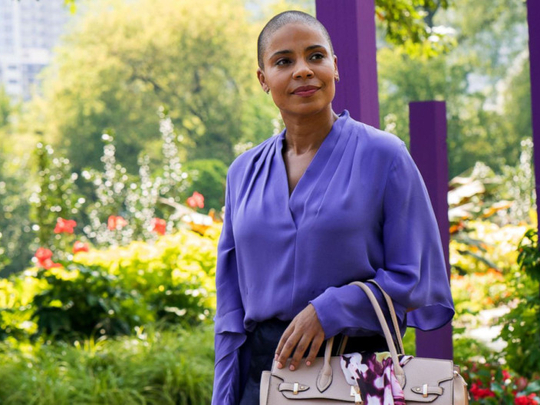
In Netflix’s Nappily Ever After, an advertising executive (Sanaa Lathan) impulsively shaves her head after a breakup, and finds freedom in embracing her natural beauty. But is the moment as empowering as it seems?
Nappily Ever After, is based on Trisha R Thomas’ 2000 book of the same name. A film adaptation of the novel, which spawned an eight-book series, had previously been in the works at Universal Pictures with Halle Berry attached to the lead role.
In the years since, Chris Rock examined the complex relationship black people — women in particular — have with their hair in the well-received documentary Good Hair. Companies including Miss Jessie’s, SheaMoisture and Carol’s Daughter, buoyed by their largely black consumer base, helped propel natural hair care into a billion-dollar industry.
More subtle and authentic homages to black hair have arrived on the small screen in recent years. Beyond embracing natural styles, shows like Insecure, Atlanta and This Is Us have portrayed the versatility of black hair that hasn’t been chemically processed or damaged by heat.
One pivotal moment happened in 2014 on ABC’s How to Get Away With Murder. Viola Davis, who plays defence attorney Annalise Keating, removed her make-up and took off her wig — a straight, brown style with honey-hued highlights — to reveal her kinky natural hair.
Comedian Phoebe Robinson called the scene “the single greatest moment in black women television history” in her 2016 book You Can’t Touch My Hair.
“This scene was so real, so honest, so raw, so everything because this is what a lot of black women look like when not in public. To present that to America was huge,” Robinson wrote. “Not only did it show what beauty preparation is like for many black women, it let most, if not all, non-black people into a world that had previously been off-limits to them.”
The moment was also appreciated by one of Davis’ peers: Tracee Ellis Ross, who wrote about the scene’s importance in an essay that year for Entertainment Weekly.
“Our culture has created a very limited view of what beauty is and can be,” Ross wrote. “I think right now television is one of the places where women are pushing up against that and saying, ‘You know what? I don’t need to play this game anymore in order to be considered beautiful.’”
The black-ish star noted that “it’s huge” for her to be wearing her own hair natural on the ABC sitcom, which will return for its fifth season next month. She added that it made sense for her character, a busy mom, who works as an anaesthesiologist.
“I’m very conscious of how I wear my hair on the show, and yet it’s the way I wear my hair as Tracee,” she wrote. “You hire me, you hire my hair.”
Over on Freeform, Ross’ on-screen daughter Yara Shahidi alternates between sleek braids and curly styles as Zoey Johnson on the spinoff grown-ish.
NBC’s This Is Us has also been praised for its authentic representation of black hair. As Beth Pearson, Susan Kelechi Watson wears a variety of natural styles, including braids, twists and curls. So do her and her husband, Randall’s (Sterling K Brown), on-screen daughters, Tess (Eris Baker), Annie (Faithe Herman) and Deja (Lyric Ross).
In an interview with Vulture last year, Watson said that NBC embraced her natural aesthetic early on.
“It’s my shout-out to black women, because for so long we’ve been told we have to look a certain way, or our hair has to be a certain way just to even be accepted or as a part of what is considered to be the American standard of beauty,” Watson told the site. “But you know, for all this, we just have a different texture hair, and there are beautiful things we could do with our hair.”
Hair care is an innate part of life for Beth. “I wake up every morning next to a headscarf and coconut oil. I’m married to a black queen,” Randall memorably declared last season. In another episode, the couple struggled to communicate with Deja — the daughter they began fostering in season two — about her hair, which went unwashed and unstyled for an extended period.
The situation led to a poignant and relatable moment when Beth offered to wash and style Deja’s hair, which she discovered was falling out in patches due to stress.
It’s not just network TV. Fans of HBO’s Insecure have come to expect an array of natural hairstyles showcased by Issa (co-creator Issa Rae). Stylist Felicia Leatherwood has re-created some of the character’s most beloved looks (with Rae as her model) in YouTube tutorials.
And even though the hairdos often look elaborate — from braided crowns to flat twist styles — Leatherwood told Essence recently that she often creates the styles on the fly. “Issa trusts me and she gives me the freedom to just create in the moment,” Leatherwood said.
On FX’s Atlanta, Zazie Beetz wears her hair natural as Van, the ex-girlfriend of Donald Glover’s Earn Marks. Beetz’s very first scene featured her waking up next to Earn in a vibrant headscarf. As they discussed child-care plans, Van took down her voluminous curls, which had been twisted into Bantu knots. It’s wasn’t the focus of the scene — and that’s precisely what made it so powerful.
“So many women come up to me, like, ‘Oh my God, that’s me!” Beetz told Vogue. “That’s what has been wonderful about Atlanta. It’s allowed me to celebrate my identity.”
While Nappily Ever After lacks the nuanced approach that these shows have taken in celebrating black hair, Violet’s decision to cut her hair was at least empowering for its star, Lathan, who, yes, really shaved her head for the role.
As she told Health magazine, “It was actually really powerful and kind of weirdly cathartic and freeing.”



